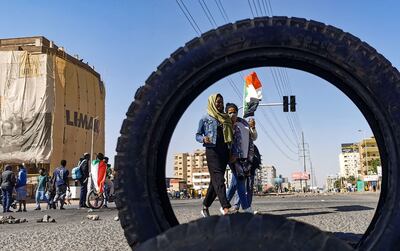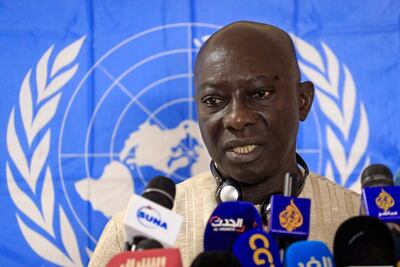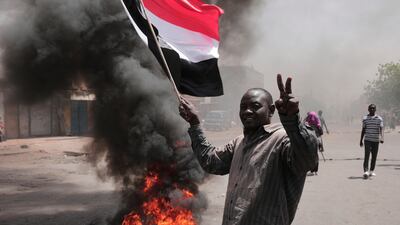Despite mounting violence and instability, Sudan will this week take part in a UN-sponsored dialogue to try and restore the democratic transition derailed by a military takeover last October.
The dialogue is the result of months of tortuous consultations between representatives of the UN, the African Union and the regional IGAD group on one side and a wide range of political parties, civil society groups, pro-democracy activists, tribal chiefs and trade unions on the other.
political analyst
However, several key stakeholders, including powerful groups that have led a wave of anti-military protests since the takeover ― foremost among them is the Resistance Committees ― are boycotting the dialogue, making good on their promise not to negotiate with the ruling generals.
The meetings will start on Wednesday, the UN said.
A divided opposition
Other pro-democracy groups are represented by small breakaway factions that have been won over by the generals, like that from the Forces for Freedom and Change.
Diehard opponents of military rule, like the Communist and Republican parties, are also boycotting the dialogue. Others are participating in the hope the process could force the military to step aside and allow civilians to lead the transition to democratic rule.
After months of scepticism over the process’ even-handedness, the military has welcomed the dialogue, saying it will co-operate with the proceedings. It has named a four-man team of senior generals to represent it at the dialogue.
“The military alone cannot solve Sudan’s problems even if elections are held in 2023 as promised,” said Mohammed Al Araby, a retired army general and political analyst.
“The situation is in crisis mode and we need the participation of all civilian factions which, unfortunately, are deeply fragmented.”
The generals, who see themselves as the guardians of the nation, have been courting the support of groups to back their claim of having popular support.
They will need their newfound allies to counter the influence of their critics.
The generals’ end game, critics say, is to retain the final word on policy after elections, even if the military is not directly represented in government.

The military’s new allies include rebel groups that signed a peace deal with the army in 2020 and are now ranked among its staunchest allies.
The generals can also count on the support of tribal chiefs in “fringe” areas in the remote east and west of Sudan, who have historically prioritised influence and financial gain, regardless of the prevailing political system.
Islamist groups once loyal to former leader Omar Al Bashir are also in the military’s corner after the generals allowed their reinstatement to the senior government positions they lost after Al Bashir was toppled.
The generals also looked the other way as they began to reorganise and unite in preparation for the 2023 vote.
The October 25 takeover toppled a civilian-led government that was also a transitional partnership between the military and the pro-democracy groups behind the uprising that led to Al Bashir’s fall.
This was strongly condemned by the West, which suspended billions of dollars’ worth of badly needed aid and repeatedly admonished the generals’ for their poor human rights record.
Last week, Gen Abdel Fattah Al Burhan, the army chief behind the takeover, lifted the state of emergency he declared when he seized power.
But the move has failed to end street opposition to his rule and was also widely interpreted as a ploy to persuade the West to resume its economic aid.
“The real problem is that the UN has paid no heed to the conditions set by opposition parties for their participation and is allowing the negotiations to go ahead regardless,” said Omar Abdel Aziz, a political analyst and a regular contributor to Sudanese newspapers.
“But, dialogue or not, the Resistance Committees remain the toughest and most difficult player in the political field right now.”
Mounting violence
The UN and a medical group aligned with the opposition say at least 99 people have been killed in protests since October and a staggering 5,000 others have been wounded.
“There can be no justification for firing live ammunition at unarmed protesters. There can no justification and I insist on that,” Adama Dieng, the UN's designated expert on human rights in Sudan, said at the end of a visit to Khartoum.

"It is simply unacceptable that 99 people have been killed and more than 5,000 injured as a result of excessive use of force by the joint security forces responding to protests," Mr Dieng said.
His voice added considerable weight to repeated western criticism of the military over its handling of the protests and a failure to investigate the killing of demonstrators and sexual abuse by security forces of female protesters.
In response to Mr Dieng’s criticism, the ruling Sovereign Council, led by Gen Al Burhan, said it hat the general has urged the UN official not to “politicise” human rights issues and to treat them with objectivity.











